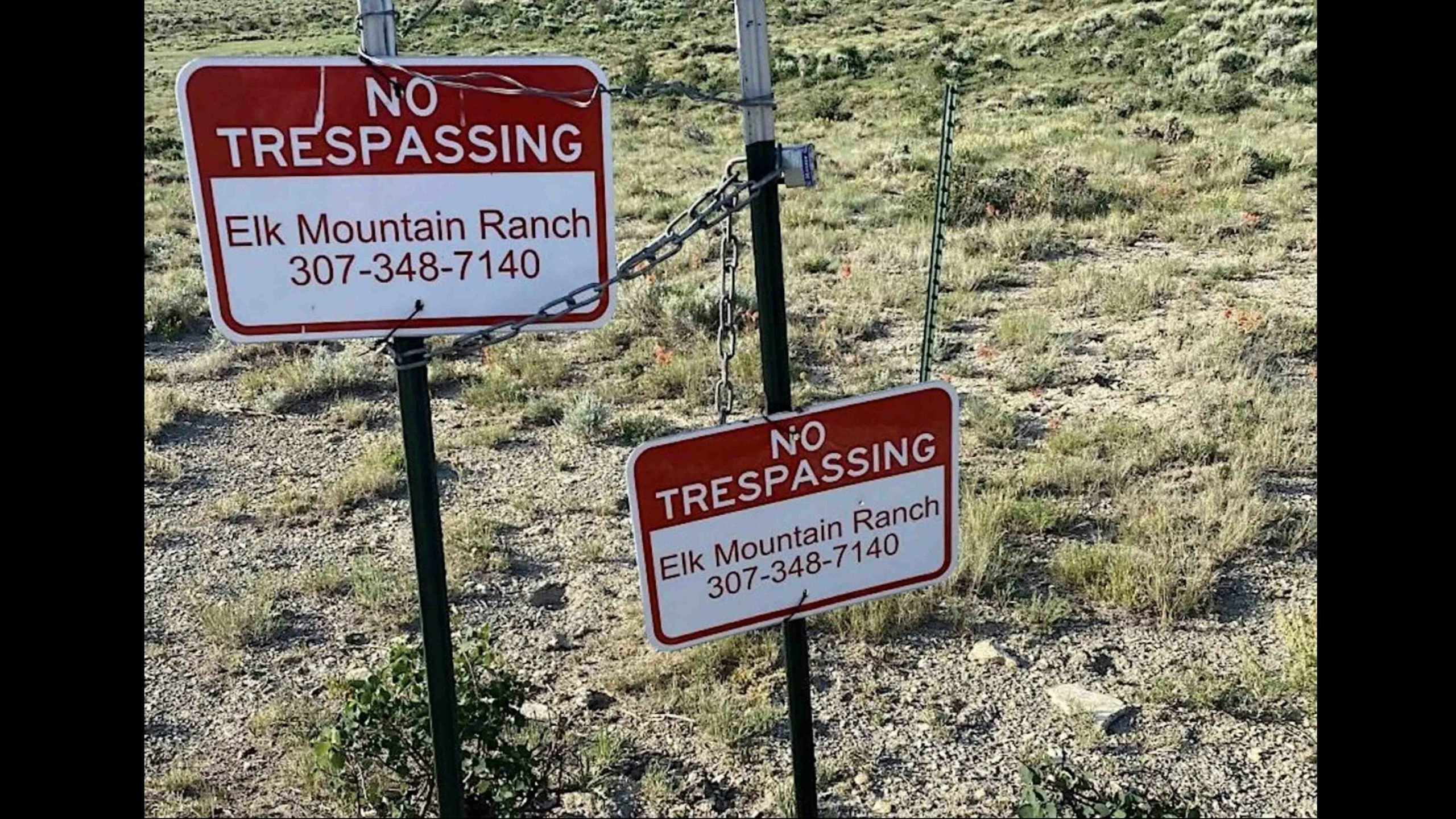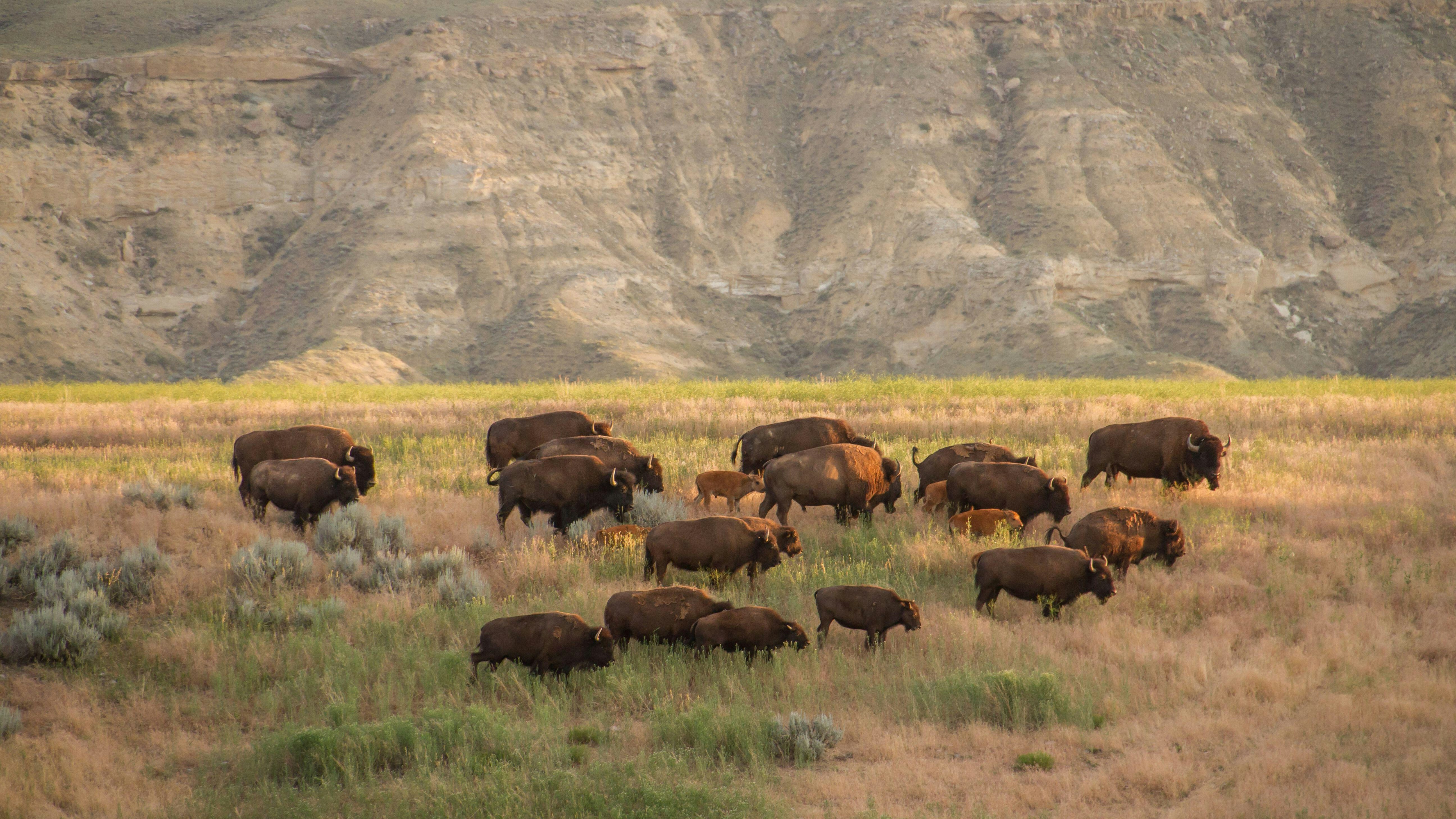Allowing “corner-crossings” in areas where private and public land are checkerboard could devalue private land, a Wyoming Realtor claims in court documents filed in connection with a Wyoming case that’s drawn national attention.
Meanwhile, state Sen. Brian Boner, R-Douglas, told Cowboy State Daily that there’s no reason to believe the Wyoming Legislature will intervene in the controversial issue during its upcoming session, which begins Jan. 10.
Boner is co-chair of the Legislature’s Joint Agriculture State and Public Lands & Water Resources Committee, which sets policy for use of public lands.
‘Jumping Corners’ Is Central Concern
If a civil trial involving a high-profile corner-crossing case near Elk Mountain goes in favor of the defendants – four hunters from Missouri who crossed private property to access public land – it could set a precedent.
Wyoming realtor James Rinehart, an Albany County resident, claims the crossing devalued the private property by millions of dollars.
He filed an affidavit in Federal District Court in support of Iron Bar Holdings LLC and its owner, Fred Eshelman of North Carolina, who are suing the hunters after they were acquitted of criminal charges.
Rinehart states in the affidavit that he assisted with the 2005 sale of the Iron Bar property to Eshelman, and that he also has worked with numerous other buyers and sellers in areas where private and public land meet in checkerboard patterns.
At the heart of the case is whether people crossing the air space over private property as they “corner jump” to adjacent public parcels could harm the value of the private party.
Eshelman contends in his lawsuit that the hunters’ actions could have significantly damaged his property value, and Rinehart backs that claim.
Ranch Value Could Plunge 30%
Making corner-crossing legal could be tantamount to allowing what many potential land buyers consider trespassing, Rinehart says.
“Thus, if I were approached to list, market and attempt to sell the Elk Mountain Ranch owned by Iron Bar Holdings LLC, if a court were to declare that Iron Bar Holdings must allow corner crossing, it would be my advice to list the property at a discount of at least thirty percent (30%) from the appraised or perceived value of the ranch before taking corner crossing impacts into account,” he says in his affidavit.
In more than 30 years of selling ranches, Rinehart states that many buyers and sellers have “expressed concern” over how corner-crossing could affect property values.
He also states that as an avid hunter and angler himself, he understands the opposing perspectives on the issue.
Legislature Sits This One Out
As the case has moved through the court system, questions have been raised about whether the Wyoming Legislature could become involved.
Boner said that that lawmakers “generally … let the courts decide that.”
“We value property rights in this state and they are fundamentally important to the economy of our state,” he said, adding that details of the current corner-crossing case are strictly a judicial matter.
Moreover, the Legislature is more likely to focus on property rights as they are affected by small parcels of public land surrounded by private land, vast areas of checkerboard patterns, Boner said.
“The big concern for us would be regarding those sections where the vast majority of the area is private,” he said.
The Conflict
The case stems from criminal trespassing charges filed against Missouri hunters Bradly Cape, Zachary Smith, Phillip Yoemens and John Slowensky.
They were accused of trespassing on Iron Bar Ranch land near Elk Mountain while attempting to cross from one corner of public land onto another section of public land in September 2021.
A Carbon County jury acquitted them of the charges.
Iron Bar Holdings and Eshelman subsequently filed a civil lawsuit against the hunters, claiming they violated the ranch’s air space and devalued his property when they used a ladder-like device to cross a fence from one parcel of public land to another.
A trial is set to begin June 26 in Casper.
Other Parties Weigh In
Rinehart isn’t the first to weigh in on the case. The Wyoming Stock Growers Association and Backcountry Hunters & Anglers both recently filed briefs related to the case in federal District Court.
Hunters claim that it’s been established by federal law that the public should have access to “checkerboarded” sections of federal land. The stock growers disagree and maintain that the legality of “corner-crossing” in Wyoming needs to be settled by the state Supreme Court.
The case has gained national attention as it could set a precedent for access to millions of acres of checkerboard public land across the Cowboy State and the U.S. West.





